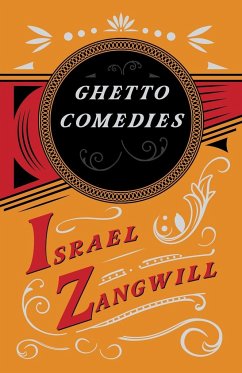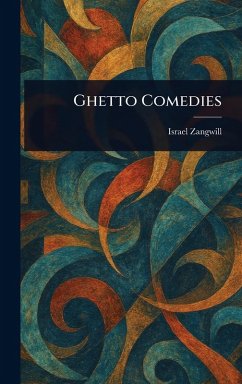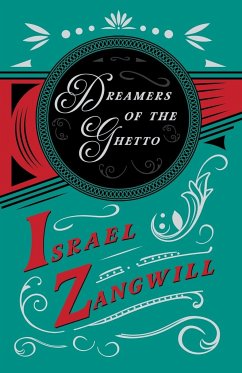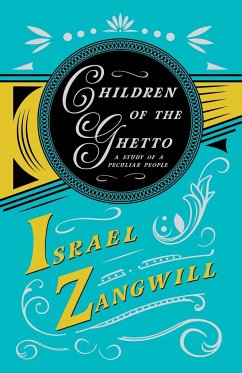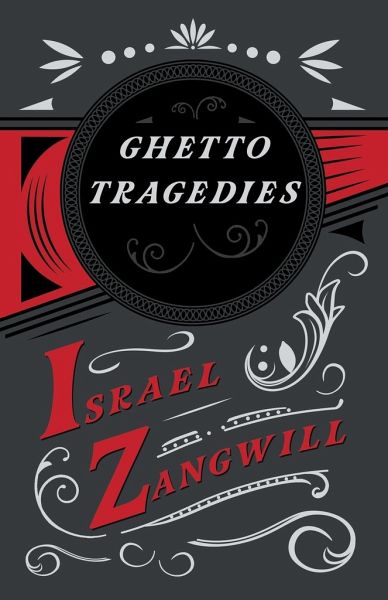
Ghetto Tragedies
With a Chapter From English Humorists of To-day by J. A. Hammerton
Versandkostenfrei!
Versandfertig in 1-2 Wochen
24,99 €
inkl. MwSt.

PAYBACK Punkte
12 °P sammeln!
¿Ghetto Tragedies¿ is a 1899 novel by British author Israel Zangwill. Contents include: ¿They That Walk In Darkness¿, ¿Transitional¿, ¿Noah's Ark¿, ¿The Land Of Promise¿, ¿To Die In Jerusalem¿, ¿Bethulah¿, ¿The Keeper Of Conscience¿, etc. Zangwill (1864¿1926) was a leading figure in cultural Zionism during the 19th century, as well as close friend of father of modern political Zionism, Theodor Herzl. In later life, he renounced the seeking of a Jewish homeland in Palestine. A notable portion of Zangwill's work concentrated on ghetto life and earned him the nickname "the Dicken...
¿Ghetto Tragedies¿ is a 1899 novel by British author Israel Zangwill. Contents include: ¿They That Walk In Darkness¿, ¿Transitional¿, ¿Noah's Ark¿, ¿The Land Of Promise¿, ¿To Die In Jerusalem¿, ¿Bethulah¿, ¿The Keeper Of Conscience¿, etc. Zangwill (1864¿1926) was a leading figure in cultural Zionism during the 19th century, as well as close friend of father of modern political Zionism, Theodor Herzl. In later life, he renounced the seeking of a Jewish homeland in Palestine. A notable portion of Zangwill's work concentrated on ghetto life and earned him the nickname "the Dickens of the Ghetto". Other notable works by this author include: ¿Dreamers of the Ghettö (1898), ¿Grandchildren of the Ghettö (1892 ), and ¿Children of the Ghetto: A Study of a Peculiar People¿ (1892).This classic work is being republished now in a new edition complete with an introductory chapter from ¿English Humourists of To-Day¿ by J. A. Hammerton.





